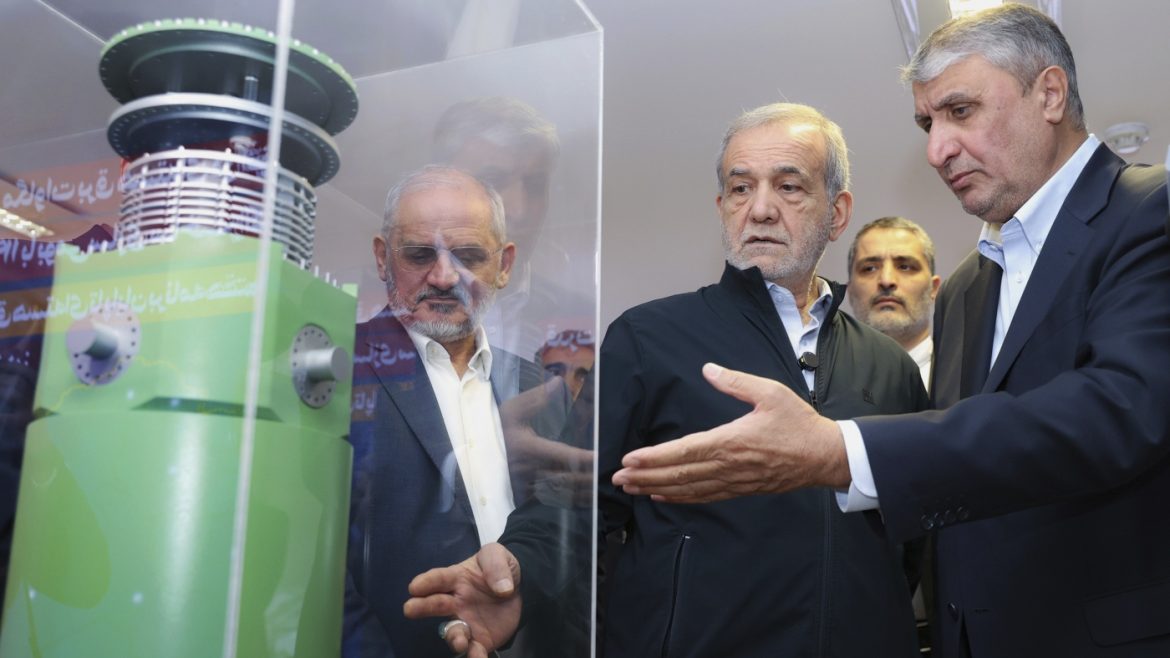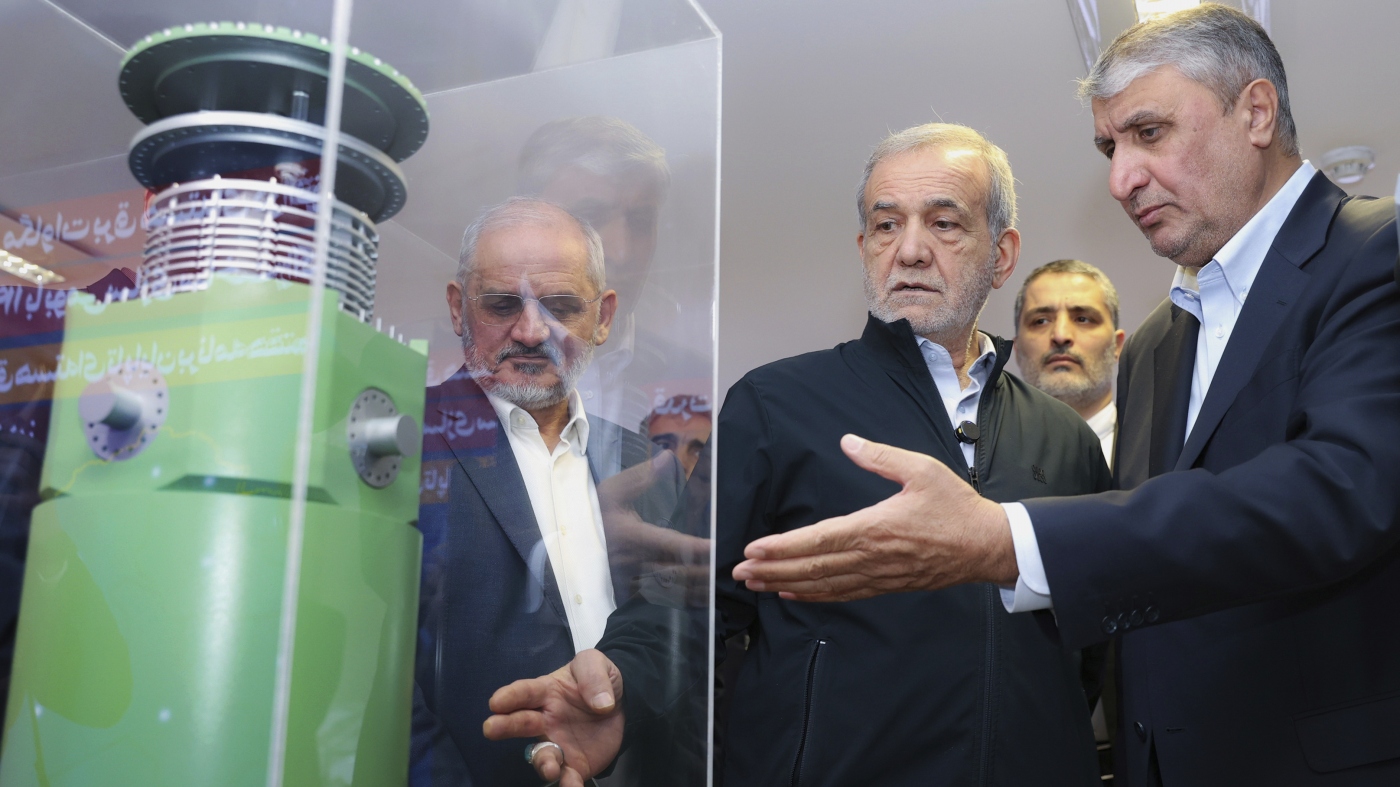President Trump’s recent warnings about a potential Israeli strike on Iran highlight escalating tensions over Iran’s nuclear program and the fragile state of diplomatic negotiations. His statements imply a dual scenario: while he prefers a peaceful resolution through negotiation, the possibility of military action looms large if current talks falter.
Rising Tensions Over Iran’s Nuclear Program
The core of the issue lies in Iran’s nuclear activities, particularly uranium enrichment, which the United Nations nuclear watchdog has reported as non-compliant with international nonproliferation obligations. This violation heightens suspicions and fuels regional anxieties, particularly from the U.S. and Israel, who fear Tehran’s nuclear ambitions may lead to weaponization.
Trump’s remarks reflect grave concerns, warning that failure to achieve a nuclear deal could trigger a “massive war” in the already volatile Middle East. His blunt statement that “Iran cannot have a nuclear weapon” underscores a red line he insists must be maintained, framing the nuclear issue as both a security threat and a diplomatic challenge.
The Prospects and Perils of Israeli Military Action
President Trump has acknowledged multiple times that an Israeli strike “could very well happen” against Iranian nuclear facilities, although he stops short of calling such an attack imminent. This cautious language reveals the complexity of balancing deterrence and diplomacy. Israel has historically advocated for military options should diplomatic measures fail, driven by Prime Minister Netanyahu’s persistent warnings about Tehran’s nuclear intentions.
Yet, Trump urges restraint, expressing a preference to avoid conflict while continuing nuclear negotiations, including rounds of talks scheduled in Oman. He implies that military action might “blow” the ongoing diplomatic process but leaves open the possibility it could also “help” in some strategic way. This ambivalence reflects the high stakes and uncertainty around the best path forward.
Diplomatic Efforts and Their Fragility
The U.S. and Iran have engaged in several rounds of indirect talks, aiming to reach an agreement that would constrain Iran’s nuclear program in exchange for relief from economic sanctions. However, trust remains thin, with President Trump expressing diminished confidence that Iran is willing to make the necessary concessions, especially around uranium enrichment.
Trump’s administration continues to apply pressure through threats of secondary tariffs and economic measures, signaling a hardened stance meant to encourage Tehran to negotiate seriously. Yet, Iranian officials have pushed back, issuing threats of retaliatory strikes on U.S. bases in the event of conflict—raising the specter of broader military escalation.
Regional Implications of an Erupting Conflict
A military strike on Iran would almost certainly trigger widespread instability across the Middle East. Given Iran’s extensive network of regional alliances and proxies, retaliation could extend far beyond nuclear sites to affect neighboring countries, oil shipping lanes, and global energy markets. Trump’s warning of a “massive war” is a sobering reminder of the far-reaching consequences any misstep could unleash.
Moreover, the political ramifications extend beyond the region—potentially involving global powers aligned with or against Iran, amplifying the risk of a protracted and unpredictable confrontation.
Striking a Delicate Balance
President Trump’s messaging reveals the delicacy of the current situation. He seeks to prevent nuclear proliferation through diplomacy while keeping the door open for robust action if those efforts fail. His public statements serve as a strategic communication aimed both at deterring Iran and reassuring Israel, signaling that the U.S. remains engaged and committed to preventing a nuclear-armed Iran.
However, the recurrent references to possible Israeli strikes and a “massive war” risk escalating rhetoric to a boiling point, which could pressure all parties toward hardened positions or precipitate unplanned confrontations.
Conclusion: At a Crossroads Between Diplomacy and Conflict
The unfolding developments around Iran’s nuclear program embody a critical juncture in Middle East geopolitics. President Trump’s candid warnings that an Israeli strike “could very well happen” if no deal materializes, and the looming threat of a “massive” regional war, underscore the precarious balance between diplomacy and military action.
The challenge is navigating this tense landscape to achieve a deal that can effectively constrain Iran’s nuclear ambitions without igniting widespread conflict. Success demands careful diplomacy buttressed by credible deterrence, while failure risks plunging the region into upheaval with consequences that would reverberate globally.
Ultimately, the current moment is a test of whether the international community can translate its strategic interests and warnings into a durable, peaceful resolution—avoiding the very crisis the warnings aim to prevent.


